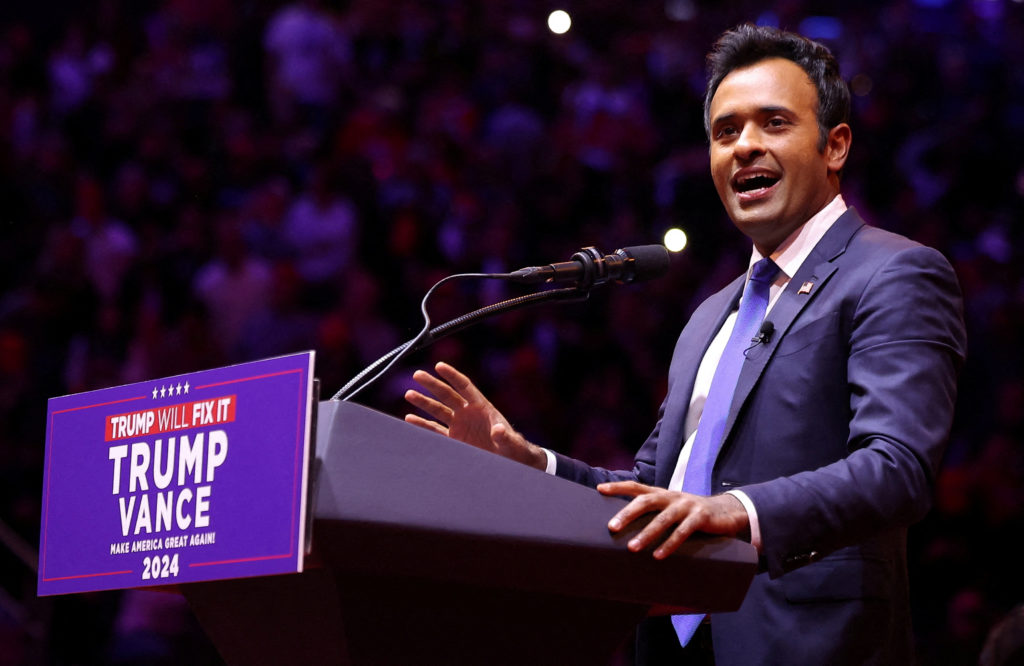Elon Musk and Vivek Ramaswamy argue that the federal government has strayed far from the founders’ vision, labeling it as “anti-democratic.” In a Wall Street Journal op-ed, they criticized the current system where unelected bureaucrats, rather than elected representatives, dominate regulatory processes.
This shift has led to the proliferation of legal edicts and decisions made by civil servants who, they contend, lack accountability. They describe this bureaucratic dominance as undermining democracy and imposing significant costs on taxpayers.
The pair highlighted the problem of entrenched civil service protections, which they claim make government workers immune to accountability. They argue that these protections enable a vast, self-perpetuating bureaucracy that grows unchecked.
Musk and Ramaswamy propose addressing this issue by leveraging President-elect Donald Trump’s administration to create a Department of Government Efficiency (DOGE). This new entity would focus on reducing the size and scope of federal agencies.
As leaders of DOGE, Musk, and Ramaswamy plan to act as external advisors to streamline the government. They described themselves as entrepreneurs rather than politicians, aiming to reduce bureaucratic overreach and promote efficiency.

Their proposed reforms include regulatory rollbacks, administrative downsizing, and significant cost savings. They intend to assemble a small team of “small-government crusaders” with expertise in law and technology to carry out this mission.
The op-ed suggests that executive actions will play a key role in their reform strategy. Musk and Ramaswamy advocate for using legally permissible methods, such as “reductions in force,” to shrink federal agencies without violating civil service laws.
They also propose relocating federal agencies out of Washington, D.C., to further cut costs and enhance government efficiency. However, they stress that their role would be advisory, with no direct authority to enforce these changes.
Ultimately, Musk and Ramaswamy’s initiative depends on the Trump administration’s willingness to adopt their recommendations. Any significant changes would require executive or legislative action to become law. They argue that curbing the influence of an unchecked federal bureaucracy is critical for restoring democratic principles and reducing taxpayer burdens.


